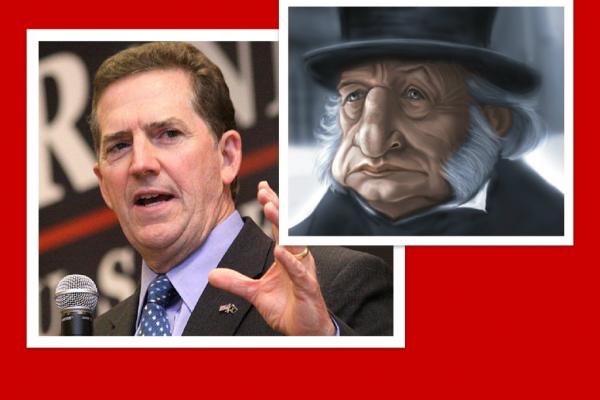Sen. Jim DeMint recently released a plan to cut the federal deficit with $4.2 trillion in spending cuts. And guess what he wants to cut?
Seventy percent of the cuts would come from safety net programs that assist low-income people, including eliminating the earned income-tax credit and child tax credit.
Even an analyst for the American Enterprise Institute objected, saying, "It's comprised completely of spending cuts and no tax increases, but then targets the lower-income programs while sparing the big middle-class programs. They could have designed a spending-cut program that was more balanced …”
The news brought to mind a parable from the mid-1800s.
In the opening scene of Charles Dickens’ A Christmas Carol, Ebenezer Scrooge is approached by two earnest gentlemen. "At this festive season of the year, Mr Scrooge,'' said the gentleman, taking up a pen, ``it is more than usually desirable that we should make some slight provision for the Poor and destitute, who suffer greatly at the present time. Many thousands are in want of common necessaries; hundreds of thousands are in want of common comforts, sir.''
Read the Full Article

